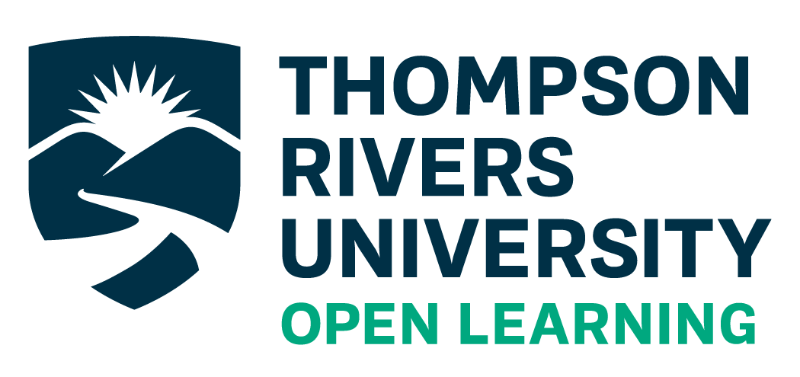Editors Meeting Notes for Oct. 9, 2019
Attendees: Chris, Cory, Courtney, Justin, Mona, Dani
Date Time 10/9/2019 11:00 AM Location OL344
Notetaker: Cory Stumpf – Timekeeper: Chris Ward (unofficially) 😉
What is a reasonable expectation for internal review?
- Course Guide components, assignment titles and marks, etc.
- Assessments: marks (do they add up?) / grading criteria
- Headings
- Consistency (of capitalization, titles, etc.)
- Check D4P to get an idea of what’s been done
- Check CNET (note discrepancies but don’t change anything)
- Perhaps look closely at one module, and if problems are found check for similar ones in others
- Flag what stands out—comment rather than change, unless obvious (e.g. missing period), then change and inform editor—make clear what you’ve identified and/or adjusted
- Search “OLFM” throughout?
- Student Handbook – should we remove mentions of it in all cases? Maybe the handbook should be updated.
Credentials
- Sometimes should include additional appropriate credentials (not just the most recent) if they are relevant to the course/program (e.g. CGA certification for Accounting)
Capitals – Black Americans/White Southerners etc.
- Don’t wait for guides to catch up; shape standardization to come
- If capitalizing “black,” capitalize “white,” or lowercase both—don’t “other”
- Importance of terminology (in a general sense use “black American,” NOT “African American”), but the terms “black” and “white” themselves could be problematic depending on the context—may differ from course to course.
- Add a notice of intention for students regarding potentially problematic terminology?
- Be conscious of different lenses/biases used.
- From Justin: Black and white: why capitalization matters (2015)
- From Cory: Chicago 17th states the following: “Note that terms such as black and white, when referring to ethnicity, are usually lower cased unless a particular author or publisher prefers otherwise.” (2017)
- From Courtney: The case for capitalizing black and white in context of racial identity (2019); Huffington: The discussion on capitalizing the b in black continues (2015); NYTimes: The case for black with a capital b (2014);
- Dani: Society for US Intellectual History: To “B” or Not to “B”: On Capitalizing the Word “Black” (2016); example of ‘notice of intention’ for how an author has used the terms: Notes to Introduction in Prayers for the People: Homicide and Humanity in the Crescent City; Conscious Style Guide: Capitalizing for Equality (2017)
- This is food for thought only at this point; this still needs further consideration. Our use of terminology/ capitals/ lower case for racial descriptors (based on physical features) may also be dependent on the author/ course developer. Should we make some standard choices around these issues and have it consistent throughout all courses (in which these terms are used) with a note of intent?
Positive Notes
- Grateful for Wednesdays, particularly of the wellness variety, and especially when cheese is involved
- Glad that we are discussing things together such as the importance of word choice, and that we continue to learn from one another and improve upon what we do
- Newer courses provide most student satisfaction, so we’re doing something right!
- We will be ordering desk copies for you of the 7th ed. APA Publication Manual!
Tabled for next meeting:
- Editing website: Who/what is it for, and what do we want it to look like?
Additional information:
Mona, Justin and I went to the Ask an Analyst session, Understanding Open Learning Students: Data-informed Insights and Outlooks
This session validated much about what we know already about our students, but there were some key takeaways for me, mainly: 1/3 of all OL enrolments represent only 25% of our courses; students want more media and videos in the courses, students are struggling with exams, which is preventing them from re-enrolling in another OL course, enrolments are continuing to grow (mostly international and dually enrolled students); 93% of students said that their course met expectations and that they would recommend their course in 60 of our courses (mostly the newer courses). ENGL and STAT courses represent the most enrolments.
IPE – Factbook 2018/2019
Other institutional reports from IPE that you may find interesting.
Matt D. from Program Delivery set up a small meeting with Sarah from Accessibility Services – She gave us some interesting stats. For example 40% of their students (that they are accommodating) are OL students, many who are suffering from mental illness or neurological disorders. Sarah said that she would be sharing her presentation with Matt – so I will let you know. This is interesting information to have from a UDL perspective as well: Are OL courses meeting the needs of these students in terms of how they are developed? Could we do better? A few weeks ago, Naomi shared a resource from the CNIB, which is good to take a look at in terms of what we may suggest for universal design.
How can we use these resources to improve our editing of distance courses?

Toronto Star: https://www.thestar.com/opinion/public_editor/2017/05/26/respect-dignity-and-fairness-conveyed-in-capital-letters-public-editor.html
A good resource (along with the others shared above) that considers terms and depictions (images, for example):
OLA Fairness to All Guide: Communicating with Respect (1999): http://www.tru.ca/library/pdf/tru-ol_fairness_to_all.pdf
“To communicate with respect, we who are the Open Learning Agency:
• Treat people as individuals.
• Call groups what they call themselves.”
For our consideration, APA’s style blog points to S5.7 of APA (7 ed.) https://apastyle.apa.org/style-grammar-guidelines/bias-free-language/racial-ethnic-minorities
“Spelling and Capitalization of Racial and Ethnic Terms
Racial and ethnic groups are designated by proper nouns and are capitalized. Therefore, use “Black” and “White” instead of “black” and “white” (do not use colors to refer to other human groups; doing so is considered pejorative). Likewise, capitalize terms such as “Native American,” “Hispanic,” and so on. Capitalize “Indigenous” and “Aboriginal” whenever they are used. Capitalize “Indigenous People” or “Aboriginal People” when referring to a specific group (e.g., the Indigenous Peoples of Canada), but use lowercase for “people” when describing persons who are Indigenous or Aboriginal (e.g., “the authors were all Indigenous people but belonged to different nations”).”